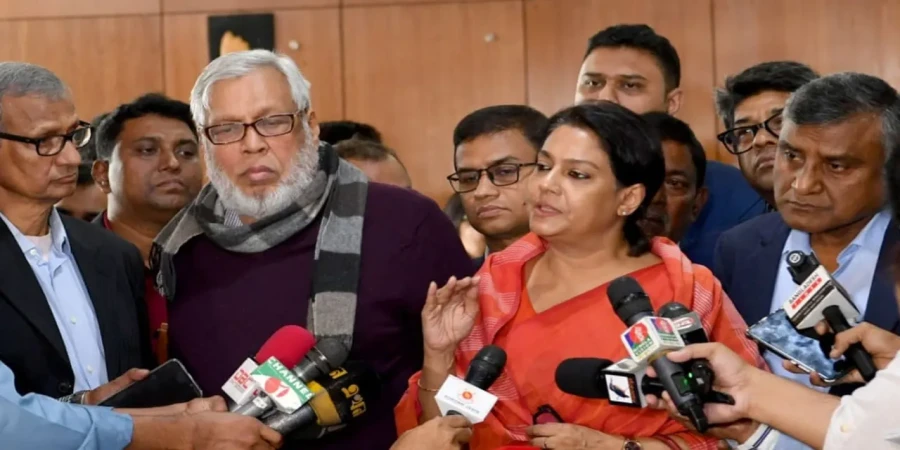
ছবি: Photo: Collected
Syeda Rizwana Hasan, Advisor to the Ministry of Environment, Forest and Climate Change, and the Ministry of Water Resources, stated that while reducing air pollution overnight is not feasible, the government is actively working to alleviate the public suffering caused by it. Speaking at a press briefing following a discussion on transportation discipline, traffic congestion, and air pollution control held at Bijoy Hall in Dhaka on Thursday (December 19), she emphasized that immediate actions are being taken to address key pollution sources.
Rizwana Hasan highlighted that air pollution in Dhaka is a persistent problem. The capital has consistently ranked among the cities with the worst air quality for years. She pointed out that efforts to combat air pollution began in 2015 when a court ruling mandated the formulation of an Air Quality Management Plan, which has only recently been finalized. A task force has now been established to implement the plan and work on reducing the visible impacts of air pollution, such as dust and vehicular emissions.
She stressed that achieving meaningful improvement in air quality is a long-term endeavor, requiring coordinated efforts over years, not months. Measures are being implemented to control pollution from dust, vehicle emissions, brick kilns, and steel mills. The task force has been assigned specific responsibilities to mitigate these sources and reduce public suffering. She assured that while overnight changes are impossible, efforts will focus on gradual and sustainable improvements.
One of the immediate steps discussed was the reduction of dust from unpaved areas, broken roads, and roadside dividers in Dhaka. Grass plantation has been suggested for open spaces near road dividers to prevent dust from spreading. Additionally, she noted that sweeping streets often creates piles of dust that are later dispersed across the city by vehicle tires, exacerbating the problem. Addressing these issues is among the priorities.
Regarding vehicular emissions, Rizwana Hasan said old, heavily polluting buses would be scrapped. She reiterated that public health cannot be compromised for the benefit of a few transport owners. She urged bus operators to take swift action to improve their fleets and adhere to stricter emission standards. Furthermore, authorities are exploring the possibility of declaring Ashulia a "no-brick kiln zone," as much of the air pollution in Dhaka originates from the kilns in this area.
While water spraying is not a solution to air pollution, it can help temporarily reduce dust and improve conditions for residents. The task force will oversee regular water spraying in areas most affected by dust. Additionally, residents have been advised to wear masks outdoors and consider installing air purifiers at home. To make air purifiers more affordable, the National Board of Revenue (NBR) has been approached to reduce taxes on such products, and an announcement on this is expected soon.
The discussion, chaired by Muhammad Fauzul Kabir Khan, Advisor to the Ministry of Road Transport and Bridges, also addressed broader issues of urban traffic management and discipline in the transportation sector. Several senior officials, including advisors from various ministries, secretaries, and representatives of transport associations, attended the meeting. They collectively emphasized the urgency of addressing both air pollution and traffic congestion to improve the quality of life in Dhaka.
repoter






